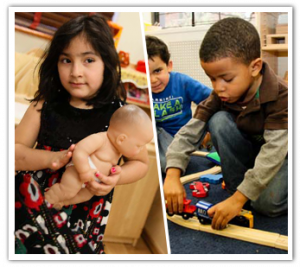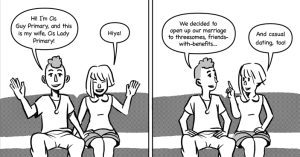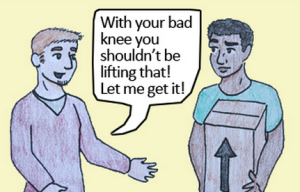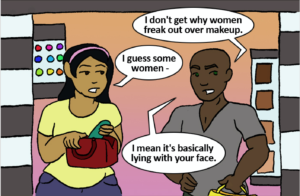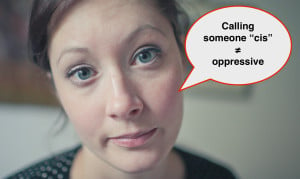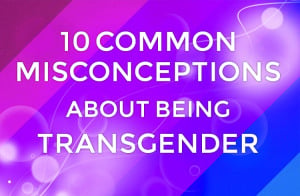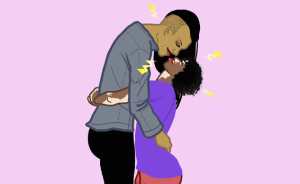
Young person standing in front of upset parents.
CW: Sexual Assault, Child Sexual Abuse, Violence Against Women
Sexual assault is the most underreported crime in the United States, with 63% of sexual assaults never being reported to police.
Despite these numbers, Latinx survivors of sexual violence are even less likely to seek out resources after sexual assault than survivors of other racial and ethnic groups.
Latinx survivors face unique cultural, social, and legal barriers that can make it harder to disclose sexual violence and seek services like SART exams, restraining orders and counseling.
When Latinx survivors do seek out help after an assault, they tend to rely on support from family and friends; reporting to law enforcement is not always an option.
I believe the best way to understand these experiences is to listen to survivors. So, before writing this article, I spoke with 11 Latinx survivors of sexual assault and child sexual abuse, all of whom come from different backgrounds and experiences.
The survivors I interviewed identify as queer, trans, South American, Chicanx, Central American, Caribbean, undocumented, Indigenous, men, women, sex workers, and first generation college students.
Each survivor discussed with me their experiences with sexual violence and the barriers that stopped or delayed them from disclosing abuse, getting help, and starting their healing journeys.
Here are some of the common barriers Latinx sexual assault survivors face:
1. The looming risk of deportation
For undocumented survivors, the threat of deportation has long served as a barrier to reporting and seeking help. Often, they don’t feel safe reporting assaults to law enforcement for fear of arrest, detention, or deportation.
“Since I am undocumented, the thought of reporting it never crossed my mind,” Survivor A said. “There was the case in [February] of an undocumented woman who went to get a restraining order against her abusive ex-partner and ended up getting detained by ICE.”
In my own work as a survivor advocate, I have seen survivors of domestic and sexual violence face arrest, detention, and prosecution when they have defended themselves against their attackers.
Because of the very real threat of deportation and other types of state violence, undocumented survivors are more likely to rely on informal support from family, friends, and community — such as therapy or support groups — instead of reaching out to law enforcement and social services.
2. Difficulties seeing sexual assault for what it is
At first, Survivor D did not know that what she had experienced was sexual assault, “I didn’t know I was raped. I thought that, because I chose to date this person, sex was just going to happen. It wasn’t until a year later that I realized what he had done to me.”
Not knowing what had happened prevented Survivor D from seeking out proper support, “I was too afraid to file a report because I was still unsure if this was considered rape or not. I had no support and began to spiral.”
When Latinx youth do not have access to comprehensive information about bodily autonomy, they are less equipped to understand the dynamics of sex, consent, boundaries, and healthy sexual interactions.
If we understand knowledge to be power, then we can see how sex education and open conversations can be an empowering factor for Latinx individuals and communities.
Comprehensive sex education should not only include information about condoms and STI prevention and treatment. It must also center discussions about affirmative consent, red flags for abuse, and healthy relationships.
3. Age and generational trauma
Survivors can be of any age, from the very young to the elderly. Additionally, the significant historical and colonial trauma Latinxs have faced informs how they are able to interact with and understand sexual violence.
In many Latinx families, children are not considered to be autonomous individuals with agency and choice. When children try to disclose abuse, they are often not believed and are told that they are lying or exaggerating.
When Survivor C was molested by her grandmother’s boyfriend when she was nine years old, she went to her grandmother for help, “I just knew it was wrong and I ran to my grandmother in her room,” Survivor C said.
“She hugged me and told me he was drunk and didn’t mean it and for me not to say anything to anyone. When I was 15 he tried it again [and] I ran to my grandmother again. This time she kicked him out but a month later she moved in with him.”
In a study of 1,000 Latinx survivors, over 12% of the survivors interviewed disclosed that they had been the victims of childhood sexual abuse. In these documented cases, about 43% of the perpetrators were family members.
The rate of reporting for sexual crimes against children is depressingly low: it is estimated that only 12% of sexual assaults against children are formally reported to authorities.
Latinxs are not free from this issue; many children in our communities suffer when we are not aware of the risks and don’t listen to child survivors.
4. Lack of family support
Latinx survivors are often slut-shamed, victim-blamed, and ignored when they disclose assault or abuse. Latinx families can be very religious and have conservative ideas around women’s bodily autonomy, sex, and sexuality.
For the survivors I interviewed, the mere topic of sexual behavior — assaultive or not — was prohibido.
“I was forced by my father to say all of the details of my sexual assault while he yelled at me in front of my apartment building,” Survivor A recounts. “My family pretends it didn’t happen.”
Survivor D has parents who are extremely religious and active in their church: “I knew opening up about having sexual relationships with someone could possibly mean I lost my place to live. My family was definitely not supportive at all; they were more concerned about keeping up their appearance in the church.”
After Survivor D was assaulted, they had concerns about their physical health and went to get a check-up. When the test results were accidentally sent to her house, they were further shamed by their mother.
“Not once did she ask if I was okay,” said Survivor D, whose mother aggressively accused them of sleeping around. “She questioned me daily, asking who I was seeing, ad if I was still a virgin, condemning me to hell.”
When survivors receive negative reactions from the people that they disclose to, it can prevent them from seeking out help or speaking to anyone else about their experiences for long periods of time.
5. Family unity takes priority
Family togetherness is extremely important for Latinxs, both culturally and in terms of socioeconomic survival in the United States. Family and community are essential for keeping folks grounded when they are far away from their countries of origin.
The survivors I spoke with disclosed that their safety and well-being were often ignored for the sake of maintaining family cohesion.
Survivor C moved to Chicago from Texas due to a lack of support from her family, who did not acknowledge what her abuser did to her: “The issue was never addressed, how I felt was never addressed, it was all about ‘the family.’”
Some of the Latinx survivors I spoke to had parents who forced them to saludar (hug and kiss) their abusers at family events, despite knowing about the abuse.
One survivor, Survivor F, was forced to socialize and interact with her childhood rapist at family functions. “When I was about 17, my parents dragged me to my abuser’s house for a party. I refused to get out of the car and started crying and hyperventilating.”
When Survivor F asked her mother why she was forcing her to see her rapist after what he did to her, her mother slapped her hard across the face and said, “Ve a saludar a tu primo y dale un abrazo y beso, no seas grosera,” or, “Go greet your cousin and give him a hug and a kiss, don’t be rude.”
“My mom made me look my abuser in the eye for the first time in about 10 years,” Survivor F recalls. “She made me hug him and kiss him like nothing ever happened. My relationship with both of my parents was already broken, but after that, it was completely shattered.”
Sometimes, even when the family does believe a survivor, they are hesitant to admonish the abuser and instead expect the survivor to “get over it” as soon as possible in order to keep the family intact. Too often, keeping the family together takes priority, even if it means the emotional and social displacement of the survivor.
6. Community supports the perpetrator
Abusers are often community members who are known and loved. Many people have a difficult time grasping the fact that their loved ones are capable of committing acts of violence.
Of the Latinx survivors I interviewed, those survivors who were attacked by a family member experienced some of the most negative reactions from parents. Their families were quick to disbelieve survivors and support their abusers.
When Survivor F disclosed to her parents that her teenage primo repeatedly raped her for two years starting when she was seven years old, they did not believe her. One day, her mother turned to her in the car and said, “I talked to your tía. Your primo said nothing ever happened and you’re lying.” When she started to cry, her mother told her to be quiet.
Because acts of sexual violence usually occur behind closed doors — in secret and out of sight — survivors rarely have physical evidence to “prove” that they were assaulted.
In these cases, families have no more evidence or reason to believe harm doers than survivors — they simply default to doubt.
7. Lack of consequences and accountability for abusers
Abusers usually face little to no consequences for the harm they cause. For the survivors that I interviewed, the abuse they endured was kept secret or ignored entirely.
Survivor B first disclosed the abuse they endured at camp while still a minor. Due to mandated reporting laws, the abuse was reported to police without the survivor’s consent, but little took place after that. “Police reports never went through, my cousin remained unscathed and untouched by legal action,” Survivor B said.
When survivors name the violence they have endured, they are often punished for speaking up, either by being subjected to stigma and isolation or being forced to continue seeing their abusers.
8. Negative responses are psychologically damaging
When a survivor is ignored or experiences a negative response when they disclose assault, the results can be silencing and psychologically harmful.
Negative reactions to survivor disclosures can be explicit or, sometimes, seemingly well-intentioned. Either way, they cause survivors to stop talking about the assault and doubt whether what was done to them was actually rape.
Without support or accountability from their family, Survivor B no longer wanted to talk about the abuse and did not seek out further resources. “Not talking about it left me incredibly depressed. I saw counselors/psychologists infrequently [but] therapy cost too much so I stopped when I was 17.”
According to the CDC, sexual violence can have short and long term psychological effects including depression, anxiety, and PTSD. Survivors of rape are more likely than non-survivors to contemplate, attempt, or commit suicide.
9. Lack of support means high likelihood of re-victimization
Among the survivors I work with, those who receive no support are more likely to experience re-victimization.
Survivor F met her first boyfriend when she was 14. He was a few years older than she was, and she thought she could trust him, especially since she lacked family support.
“I confessed to him my past and everything that had happened. In turn, he used it as a weapon against me. He’d repeatedly cheat on me, verbally abuse me, and tell me no one would want me. He was the only one willing to put up with my past. This relationship lasted 6 years — my entire teenage years”
Survivor B had to take a medical withdrawal from school because they became severely depressed and experienced emotional abuse from new partners. “College took a huge toll on my mental health because I came out to myself as trans. I was in one emotionally abusive relationship after another. It wasn’t until recently that I sought help yet again,” Survivor B said.
Some survivors are pressured into dating and meeting new people before they are emotionally ready, and they are more likely to be preyed upon by abusers who are seeking a vulnerable, insecure, and socially isolated partner to control and manipulate.
10. Survivors forced to create their own support systems
Since many Latinx survivors cannot rely on support from their families or local institutions, they must often create their own support systems of chosen family and friends. The survivors I interviewed found love and support from friends when their families would or could not help them.
Survivor A was unsure about going to therapy. “It got to the point where my mental state was endangering my life so through the guidance of a friend, I started and it helped me survive,” they said.
A combination of therapy and love from friends helped Survivor C come to terms with their assault: “I have learned through therapy, friends, as well as self-reflection that nobody deserves to go through this but, if you do, it does not make you less of a person.”
Supporting and believing survivors can go a long way. Negative family and community responses to rape and abuse have a direct impact on Latinx survivors’ ability to heal, report their abusers, and seek out ways to heal.
***
Part of striving for healing justice in the Latinx community means recognizing the work we have to do.
We must come together to address the violence we enable, cover up, and perpetuate within our own families and neighborhoods.
We must own up to the direct and unintentional harm that we do when we silence survivors and choose not to support them. When we doubt and blame survivors, we cause direct harm.
Love, empathy, patience, and support can make a world of difference in creating spaces for truth and healing for survivors in our communities.
Each time we love and believe survivors, our communities begin to heal.
[do_widget id=’text-101′]
Mala Muñoz is an Everyday Feminism Reporting Fellow. Mala is a writer, advocate, and crisis counselor from Los Angeles. Her writing has been featured in VIBE Magazine’s online Latinx platform, VIBE Viva, and the HuffPost Blog. A third generation Xicana and one half of the podcast Locatora Radio, Mala’s work, online and in real life, focuses on the creativity, genius, and legacies of women and survivors of color.
Search our 3000+ articles!
Read our articles about:
Our online racial justice training
Used by hundreds of universities, non-profits, and businesses.
Click to learn more
Most Read Articles
- « Previous
- 1
- …
- 30
- 31
- 32






